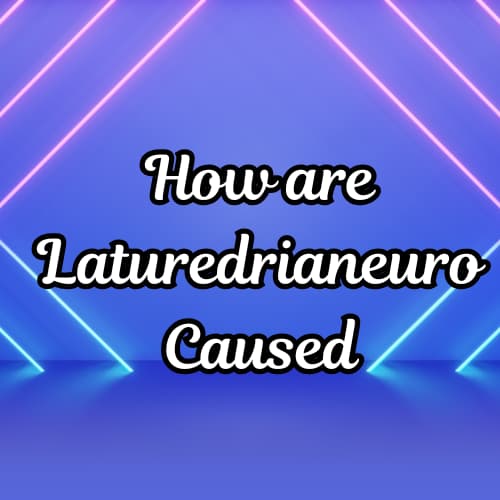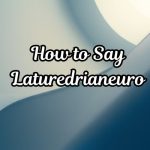Across forums and social platforms, a query — what causes Laturedrianeuro? is trending. Some claim it’s genetic, others say it’s an effect of environmental exposure or long-term stress. Yet no scientific study has confirmed any single cause. The best way to approach it is by separating verified data from internet myths.
Current Reality: No Confirmed Scientific Cause
Medical databases such as PubMed, WHO, and CDC contain no record of any illness or disorder named Laturedrianeuro. That means:
- No research papers define its structure or mechanism.
- No hospitals or neurology institutions have identified it.
- No diagnostic codes exist in official medical lists like ICD-11.
So, any “cause” you read online is speculative. Still, understanding the theories circulating can help detect where misinformation originates.
Commonly Mentioned Theories About Its Cause
Various explanations appear across online discussions. Some sound medical but lack factual evidence. Here’s a breakdown:
| Claimed Cause | What It Means | Scientific Proof |
| Genetic defect | Belief that it passes through family genes | None |
| Viral infection | Suggests it starts from a brain-targeting virus | |
| Environmental toxins | Blamed on pollution, heavy metals, or chemicals | Nothing |
| Electromagnetic exposure | Claimed link with 5G or radiation | No tests confirm it |
| Psychological overload | Described as “stress-induced brain fatigue” | No link established |
| Deadly | Death | Partially possible but unproven |
While none of these explanations stand on scientific ground, they show how misinformation spreads through half-truths and emotional language.
Why People Connect It With Brain Function
The suffix -neuro implies something connected to the nervous system. Because of that, many assume Laturedrianeuro must affect the brain. Some posts online describe:
- Slow memory recall
- Sudden emotional changes
- Minor hand tremors
- Sleep irregularities
These are non-specific symptoms that could fit countless real neurological or psychological issues such as anxiety, burnout, or migraine. But linking them to a term with no research background creates unnecessary fear.
How Online Misinformation Shapes “Causes”
Internet trends often turn a mysterious phrase into a believable diagnosis. Here’s how:
- A phrase appears — usually from a forum or post.
- Creators copy it — bloggers or AI tools repeat it for clicks.
- Visual content appears — fake scans, photos, and “symptom charts.”
- Few share it, thinking it’s new medical discovery.
Before long, it appears real. This is how Laturedrianeuro became attached to so-called causes without evidence.
Could Stress or Lifestyle Actually Play a Role?
Even though the term lacks scientific validation, some of the symptoms described under it overlap with stress-related disorders. Long-term emotional strain can cause:
- Head tension and fatigue
- Forgetfulness
- Irritability
- Brain fog
These effects happen due to chemical imbalances such as elevated cortisol and reduced dopamine or serotonin. So, while stress can harm brain function, that doesn’t mean it creates Laturedrianeuro. It simply mimics symptoms people might associate with it.
A Psychological Origin Theory
Some experts in behavioral health suggest that mysterious terms like Laturedrianeuro may develop from collective psychological effects. In this model:
- People experience unexplained fatigue or confusion.
- They search online and discover the term.
- The brain then connects symptoms to that word.
- Anxiety reinforces physical sensations, creating a loop.
This phenomenon, known as psychogenic symptom attribution, has been seen before in cases like “electromagnetic hypersensitivity” and “digital eye fatigue.” It doesn’t mean the symptoms aren’t real — it means the label may be misleading.
Environmental Claim
Several websites mention pollution or heavy metals as causes.
Let’s examine that idea.
| Environmental Factor | Possible Effect on Brain | Linked to Laturedrianeuro? |
| Air pollution (PM2.5) | Can impair cognition in long exposure | No confirmed relation |
| Lead or mercury exposure | Causes real neurological damage | Not tied to Laturedrianeuro |
| Pesticides | Associated with certain tremor disorders | Not linked |
| High EMF zones | No proven biological harm | Not linked |
These elements do affect brain health, but none are tied specifically to this term.
The “Digital Cause” Speculation
Another theory says Laturedrianeuro could be linked to excessive technology use.
While constant screen exposure may reduce attention span and sleep quality, labeling it as a separate illness is incorrect.
Doctors use terms like tech fatigue or digital burnout, not Laturedrianeuro.
Still, maintaining screen balance and mental rest is always helpful:
- Follow the 20-20-20 rule (every 20 minutes, look 20 feet away for 20 seconds).
- Keep blue-light filters on devices.
- Set digital downtime each evening.
These habits promote better focus and brain clarity.

What Real Neurological Disorders Teach Us
To understand the gap between real and fictional, here’s a comparison:
| Feature | Recognized Neurological Disease | Laturedrianeuro |
| Cause identified | Yes (e.g., dopamine loss, viral infection) | No |
| Genetic research | Available | None |
| Clinical studies | Peer-reviewed | None |
| Treatment protocols | Documented | None |
| Survival data | Tracked | None |
| Global recognition | WHO / NIH approved | No record |
This table highlights that Laturedrianeuro lacks every component that validates a genuine medical condition.
Could It Be an Online Hoax or Code Word?
Some digital researchers believe Laturedrianeuro might have started as an internet code word, possibly from AI-generated text or dark-web discussion groups. When content bots replicated it, the term spread beyond its origin.
In case that’s true, it never had a biological or neurological base — it was simply a linguistic artifact that caught attention.
Signs that support this:
- Spelling variants appear in random blog comments.
- No consistent definition across languages.
- Keyword stuffing patterns suggest SEO manipulation.
Hence, “causes” might not be medical at all, but algorithmic.
How to Respond to Claims About Its Cause
Before accepting any explanation:
- Check the source — official medical or educational domains are reliable.
- Avoid influencers or videos without references.
- Look for author credentials (neurologist, researcher).
- Consult a doctor for real symptoms.
- Don’t share screenshots from suspicious sites.
Being selective with information helps stop the false expansion of the term.
Right now, no one knows what causes Laturedrianeuro — because no recognized research defines it. Every claim linking it to genetics, environment, technology, or infection lacks validation. The term may describe psychological effects, digital fatigue, or pure online fabrication.

